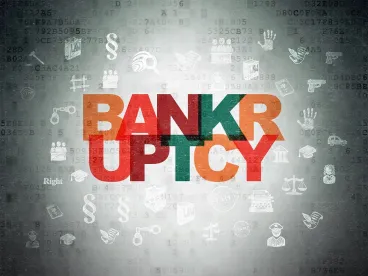In the past several years, the United States has seen a tidal wave of retail sector chapter 11 cases. The end result for most of those cases has been going out of business and liquidation sales. On March 11, 2020, Modell’s Sporting Goods commenced its chapter 11 cases seeking to follow a similar path taken by other retailers by closing all 153 sporting goods stores in a controlled liquidation. Unfortunately for Modell’s, the COVID-19 crisis hit the United States just as Modell’s commenced its liquidation. Within days of the filing, states across the country began to issue orders requiring non-essential businesses to close to prevent the spread of COVID-19. Sporting goods stores such as Modell’s are not essential businesses and, as a result, its well-planned chapter 11 process was grounded before it had the chance to takeoff.
In order to combat the fatal blow that COVID-19 and the state directives would have on Modell’s liquidation, and in an effort to preserve value for stakeholders, Modell’s took the unusual step of filing a motion to suspend its chapter 11 case for several months. Section 305 of the Bankruptcy Code provides that, after a notice and a hearing, the Bankruptcy Court may dismiss or suspend a case at any time if the interest of creditors would be best served by such dismissal or suspension. Generally, section 305 is used for, and results in, dismissal of a bankruptcy case. Here, Modell’s sought to use section 305 to suspend its bankruptcy case for 45 days (modified from the original request of 60 days) and during such suspension the company would “mothball” its operations, defer payments owed, including rents, terminate employees at the stores and distribution centers and utilize a skeleton crew at the corporate headquarters. The company would operate under a modified cash collateral budget during the suspension with limited expenditures. Modell’s asserted, in its request, that once the COVID-19 emergency is over, it would be ready to reoperationalize and complete the liquidation process it started on March 11, 2020. The company argued that this suspension is in the best interest of all stakeholders because it would preserve the status quo while all non-essential business are shuttered, and allow the company to continue its liquidation efforts when the COVID-19 emergency has passed.
Modell’s lenders and its the official committee of unsecured creditors supported Modell’s request. A number of Modell’s landlords, however, objected by arguing, among other things, that the suspension, as proposed, would force the landlords to be non-consenting lenders to the company without any attendant protections. Specifically, the landlords would be forced to go without rent for April, May and beyond and not be able to recoup those losses for several months, if at all, after the suspension ended. Essentially, the landlords would be providing interest-free loans to Modell’s in the form of the rent payments that Modell’s would be permitted not to make. And, according to the landlords, there is no guarantee that Modell’s would ever be required to remit the missed rent notwithstanding the clear requirements of the Bankruptcy Code protecting landlord rights.
On March 25, 2020, the Bankruptcy Court held a hearing and considered the arguments of all sides. The court did not rule at the initial hearing but adjourned the proceeding for two days to allow the parties to continue talking to devise a workable solution. Following that delay, the court ruled on March 27, 2020, that it would grant a suspension of the case to April 30, 2020, which is a suspension of approximately thirty days. During this suspension, the court made it clear that Modell’s only can pay for essential expenses and all parties’ rights are reserved with respect to the budget and issues arising under section 365 of the Bankruptcy Code. The debtor will be back before the court on April 30, 2020, to consider a further suspension and any related objections.
Cases all over the country are facing the same issues underlying the Modell’s motion to suspend. COVID-19 has thrown the nation’s economy into a state of paralysis. Nothing can be done, financially or otherwise, while we mitigate the spread of the virus. As a result, the well laid restructuring plans of companies like Modell’s are likewise paralyzed or completely undermined. Whether the case is in the initial stages, as is Modell’s, or is in the plan confirmation phases, such as the Title III Puerto Rico case where a disclosure statement hearing was set to occur, the major stakeholders all face the same decision – do you push forward with a process that may no longer be economically viable or do you stand-down and take a breathing spell from the breathing spell afforded by the commencement of a bankruptcy case?
It analyzing a situation such as Modell’s, it is easy to understand that all parties can obtain a benefit from the suspension of a bankruptcy case amidst the COVID-19 crisis. In the current environment, it is next to impossible for any party to cut a business deal because of the constricted financial markets or when all parties are on lockdown. A suspension of the case provides an opportunity to allow the crisis to pass and reorganize the business when life returns to normal. Doing so will preserve the current value of the business and allow parties to return to the negotiating table knowing that the business still exists and the markets are functioning again. Such a suspension allows:
-
a debtor to preserve the value of its business and attempt a successful reorganization in a functioning financial market;
-
lenders to preserve the value of their collateral by not seeking the premature sale or liquidation of such collateral at a time when markets are depressed; and
-
unsecured creditors to preserve value of the business so that such creditors can continue doing business with a viable reorganized entity or extract value from a liquidated entity that is liquidating for a fair market value.
Further, the suspension order from a federal bankruptcy judge provides certainty that the executive orders of individual governors may not provide since such executive orders may not be enforceable under their own state law or the law of states where the company operates. Therefore, it is important for all stakeholders to take a step back and assess whether it is appropriate (and it likely is) to suspend a pending bankruptcy case until after the COVID-19 crisis has passed.





 />i
/>i

